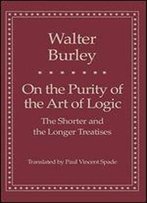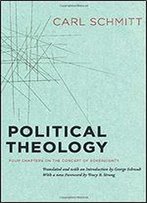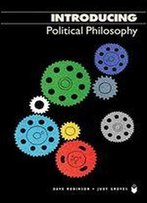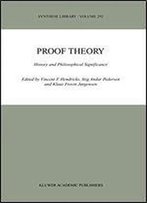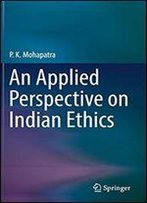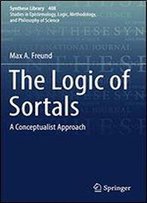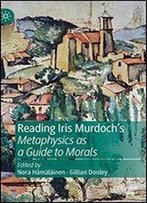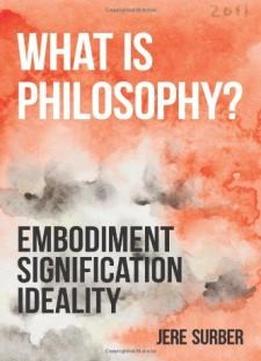
What Is Philosophy?: Embodiment, Signification, Ideality (anamnesis)
by Jere Surber /
2014 / English / PDF
3.2 MB Download
The enterprise of philosophy has been under sustained attack
throughout the 20th century, not just by the sciences and allied
cultural forces but within the traditions of analytic and
Continental thought themselves. This work attempts to diagnose the
roots of these assaults on the enterprise of philosophy and
responds to them by developing a new constructive and systematic
'image of philosophy.' This novel conception of philosophy aims to
re-establish philosophy's 'field' as a humanly indispensable
enterprise autonomous from, but related to, other such areas as
religion, science, and art. Beginning with Kant's suppressed notion
of 'analytic a posteriori judgments,' and drawing widely upon both
the ancient and modern traditions as well as such contemporary
thinkers as Deleuze, Badiou, and Meillassoux, it proposes a new
'mapping' of the field of philosophy in terms of three conditions
necessary for the very existence of philosophy as an activity, body
of texts, and thought-complexes expressed in them: embodiment,
signification, and ideality. In so doing, it offers a view that is
realist, finitist, constructivist, and pluralistic, but that also
accords a central role to logical reasoning and truth claims. In
the end, it seeks to discover the common roots of the analytic and
Continental traditions, to move beyond the impasses and exhaustion
of 'postmodernisms,' and to provide a framework for addressing the
newly emergent philosophical issues of the 21st century.
The enterprise of philosophy has been under sustained attack
throughout the 20th century, not just by the sciences and allied
cultural forces but within the traditions of analytic and
Continental thought themselves. This work attempts to diagnose the
roots of these assaults on the enterprise of philosophy and
responds to them by developing a new constructive and systematic
'image of philosophy.' This novel conception of philosophy aims to
re-establish philosophy's 'field' as a humanly indispensable
enterprise autonomous from, but related to, other such areas as
religion, science, and art. Beginning with Kant's suppressed notion
of 'analytic a posteriori judgments,' and drawing widely upon both
the ancient and modern traditions as well as such contemporary
thinkers as Deleuze, Badiou, and Meillassoux, it proposes a new
'mapping' of the field of philosophy in terms of three conditions
necessary for the very existence of philosophy as an activity, body
of texts, and thought-complexes expressed in them: embodiment,
signification, and ideality. In so doing, it offers a view that is
realist, finitist, constructivist, and pluralistic, but that also
accords a central role to logical reasoning and truth claims. In
the end, it seeks to discover the common roots of the analytic and
Continental traditions, to move beyond the impasses and exhaustion
of 'postmodernisms,' and to provide a framework for addressing the
newly emergent philosophical issues of the 21st century.

